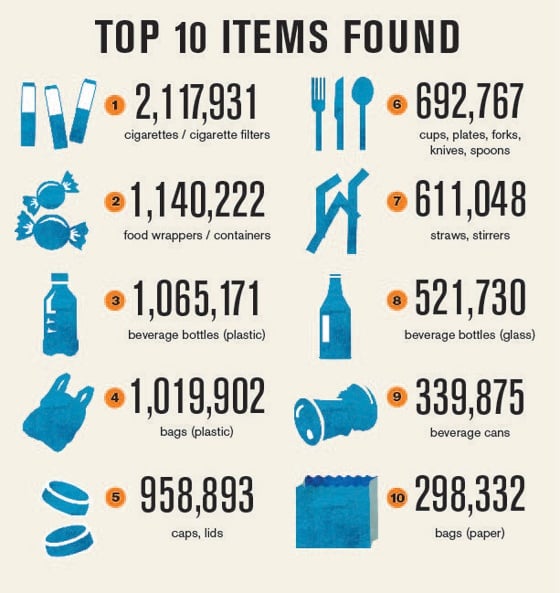New Law In France
France has recently become the first country to ban plastic cups, plates and utensils. The new law that has passed states that all plastic cutlery will be completely barred by the year 2020 and that the replacement utensils must be biodegradable and able to be turned into compost. These new utensils must be sourced from biological goods. This rule has come following a complete ban in France on all plastic shopping bags. The censorship on shopping bags is becoming a global phenomenon, following in the likes of Australia, India, Germany, Italy, Japan, Turkey, Sweden, Belgium, Papua New Guinea, and many African countries including Morocco. Billions of plastic bags are being discarded in Paris alone, with France now demonstrating hopeful methods of helping to reduce greenhouse gas emissions and tidy the world of its plastic crisis. Following the recent COP21 climate change conference held in Paris, the world seems more ready to address this utmost threat to society, and France is now putting into practice these environmentally friendly laws to help rectify some of the damage already done to our planet.
The Damage Plastic Is Causing To Marine Life
Plastic bags and products are having a disastrous global effect, polluting waterways and oceans and damaging wildlife on an unequivocal scale. Earlier this year thirteen sperm whales were found dead on a beach in Germany’s west sea coast, their bodies full of plastics and car parts that they had ingested from the ocean. Although the beaching of these whales was not based entirely on the plastic found in their stomachs, this is just one example of the damage plastic and pollution is causing to marine life and wildlife throughout the world. Along with plastic bags and utensils, we will hopefully be addressing the need for bans on styrofoam cups, cigarette butts, plastic bottles and straws.
Effects Of The Law
The new law banning plastic utensils will come into effect for grocery, fruit and vegetable stores in January 2017, though the ban has already been issued since July in supermarkets throughout France. Consumers have been given this six-month stretch as an adjustment period to help comply and conform to the changes. The ban will be fully enforced by the year 2020, with law enforcers hoping to see on average a fifty percent gain in using organic and biodegradable products.
Plastic Waste
There is a phenomenal amount of plastic waste showing up on our beaches. The image below shows the top ten items we are dealing with when it comes to plastic and pollution. Cigarettes and cigarette filters top the list closely follwed by food wrappers and foood containers.
By helping to reduce the amount of plastics manufactured, conservationists are hoping that by the year 2025 we will have increased organic and compostable products by 60 percent. Alongside France, the European Union is hoping to halve the amount of plastic bags being used by the year 2019.
Opposing The Law
Hundreds of thousands of plastic products line the shelves of supermarkets all over the world. This law and plastic bag bans worldwide are just the beginning of addressing this problem. Although universally this law is welcomed by conservationist groups and concerned individuals, not everyone involved is overjoyed. European packing organizations are said to be taking legal action on the new law due to infringements on their rights. They argue that consumers will now believe it plausible to not tidy up after themselves and will leave biodegradable waste littered through forests and other natural areas. Time will tell. Featured photo credit: Melissa Johnson via flickr.com

